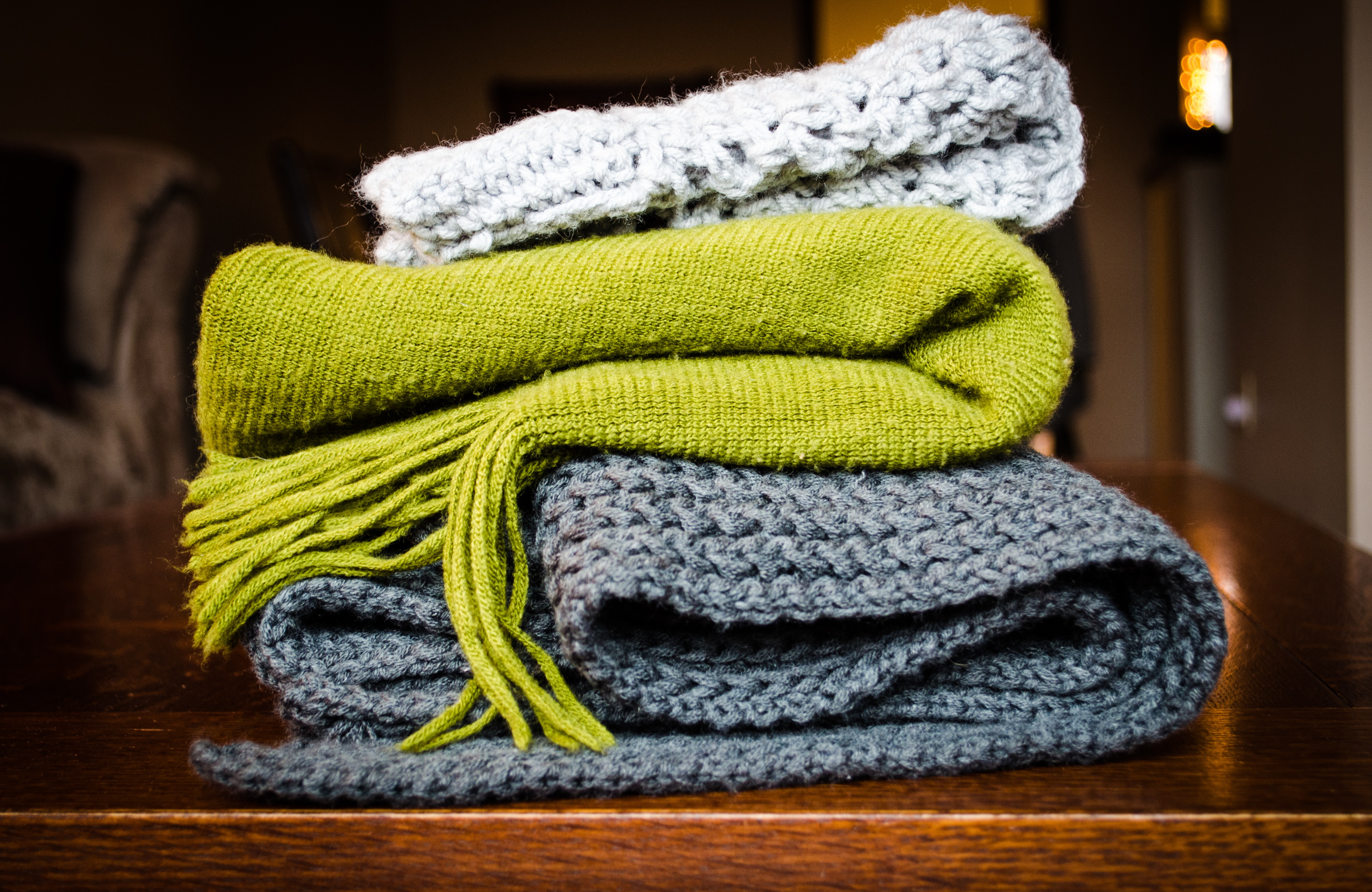What is the current situation with energy bills?
Last winter was branded an ‘energy crisis’ with the average bill coming in phenomenally higher than usual (from average of £1277 in October 2021 to £3549 in October 2022). The energy bills support scheme helped a little, but thousands of people up and down the country struggled with the increased bills.
Cautiously, there is some good news. In October 2023 the average bill will be £1,927, substantially less than October 2022, but still hundreds of pounds higher than the October 2021 average.
Especially given now we have transitioned into a broader ‘Cost of Living Crisis’, with all general amenities having increased in cost across the year, many of us will find ourselves cash-strapped as we enter the winter. And this is where we hope these energy-saving tips will be useful in reducing our energy consumption.
 Wrap up warm this winter before turning up the thermostat
Wrap up warm this winter before turning up the thermostat
And, of course, we are in the middle of a climate crisis. It is vital we do what we can to reduce our consumption of energy, particularly from fossil fuels. If we don’t, keeping global temperatures below the 2 degrees of warming will not be possible (as set out in the Paris Climate Agreement 2015). Whilst this requires broader political and societal change away from fossil fuels, we do have a role to play ourselves in being mindful about our own consumption habits.
- Wrap up warm – it sounds obvious, but it shouldn’t be normal to sit in a pair of shorts inside with the heating pumping out over winter. Get those jumpers on, and always opt for layers before turning up the thermostat.
- Open curtains/blinds in the morning to allow natural light (and thus heat) get in and close them in the evening as soon as it’s dark to trap in the heat. This can stop heat loss by 15%.
- Close the doors between rooms so that heat doesn’t escape and heat empty rooms/corridors where it’s not needed.
- A hot water bottle uses less energy than heating a whole home. Great for working from home to keep your extremities warm!
- Mind the gaps – identifying and plugging draughts around doors and windows can save you up to £45 a year.
Truth: Don’t pay for heat that you’re not using!
If you are out during the day (or tucked up in bed at night), you don’t need the heating on. Instead, programme your central heating using the timer so that it switches off when you’re out or in bed, and switches back on to warm up the house about half an hour before you get home or before you get up.
And turning down the thermostat by 1 degree Celsius can save a lot of money – we’d recommend trying 19 degrees and seeing how you find it.
As a rule of thumb, anything which requires heating up water is energy extensive.
- Kettle – only boil what you need
- Washing machine – always put on a full load, and 30 degrees works fine for most washing!
- Modern dishwashers, whilst they do use a lot of energy, are generally still more efficient than hand washing, just make sure you always fill it up fully before setting it off. If you don’t have a dishwasher, do the washing up all in one go in a bowl rather than keeping the tap running.
- Showers – shaving just 1 minute off your showers saves a ton of water and energy across the year.
-
Turn off or turn down the heating in empty rooms by using the valves on radiators until you reach your desired temperature - this could save approximately £70 per year.
- Ditching the tumble dryer and drying your clothes on a washing line or clothes horse could save you £60 a year according to the Energy Savings Trust. Avoid drying clothes on radiators – this makes your boiler work harder.
- Did you know the more iced up your freezer is, the more energy it uses? It’s well worth defrosting your freezer as we head into winter if it’s needed.
- Switch it off! In addition to lights (the obvious one), turning off electronics at the wall rather than leaving on standby is a key tip. In theory, a TV left on standby every night for a whole year could be costing you an extra £50 per year.
-
Try turning your boiler's flow temperature down to 60 degrees to improve its efficiency - while it will mean your home probably takes longer to reach the temperature you set it to, it could save you approximately £100 a year.
Every action matters – many of these tips can sound ridiculously small, but they all will save a considerable amount of money across the winter and reduce your energy bills.